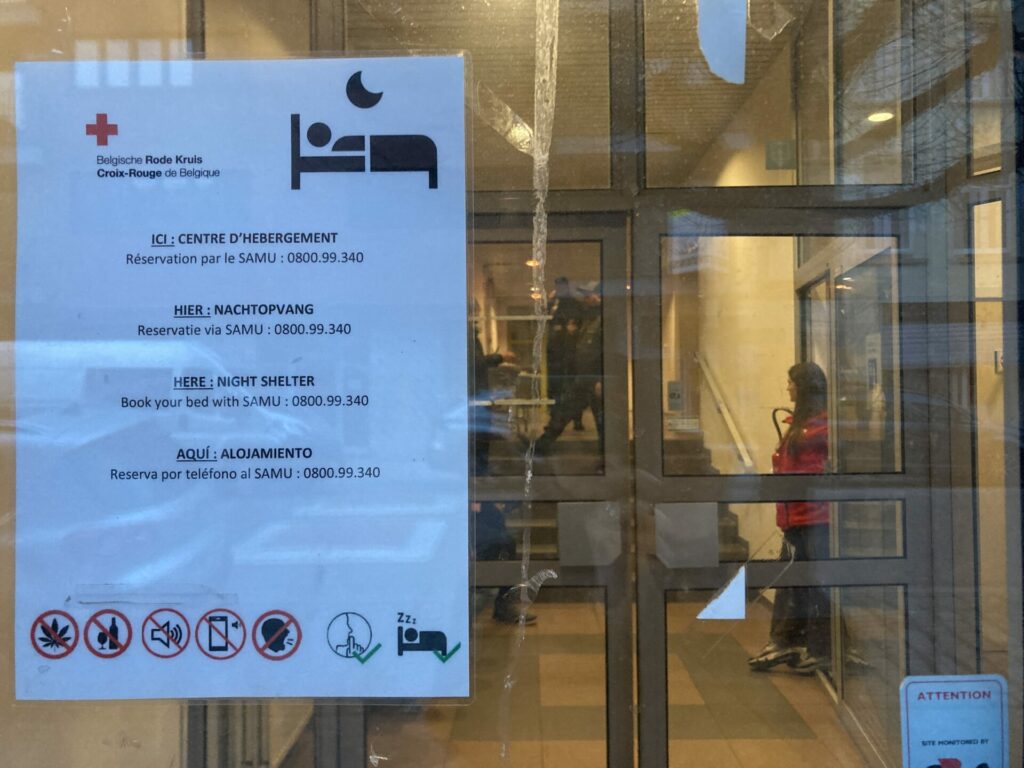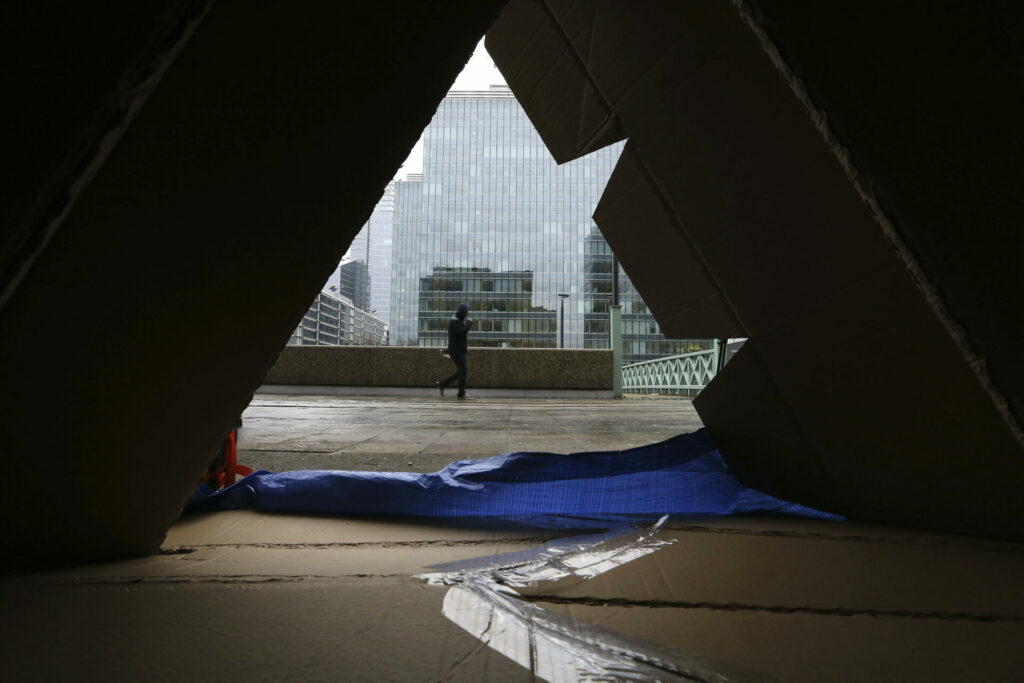As night temperatures are expected to remain below 0°C for at least the rest of the week, the Brussels municipality of Etterbeek is deploying special protection measures for homeless people as well as opening an extra emergency centre.
In response to the particularly cold nights, Etterbeek mayor Vincent De Wolf (MR) issued a police order providing shelter for homeless and poorly housed people, as part of the regional 'Extreme Cold' plan.
"Any homeless person present in the territory of Etterbeek between 20:00 and 07:00 is obliged to be sheltered within the accommodation systems deployed in order to be protected there," the municipality announced in a press release.
According to the police order, homeless people can be taken to shelters by the police regardless of their consent, unless they will look for shelter of their own accord. At each centre, a doctor will also assess the person's state of health.
Obliged to ensure public safety
In case of absolute necessity and under medical confirmation, the administrative arrest of homeless people refusing to be accommodated is authorised. "These temperatures seriously increase the risk of hypothermia and death. As a municipal administration, we are obliged to ensure public safety and provide assistance to anyone in danger."
The police order may also be extended if the winter episode continues.
Additionally, an emergency accommodation centre providing 20 places "to supplement the existing centre to warm up at night, which is already operating at full capacity" was also opened on Sunday evening, the municipality said.
In collaboration with the President of the Etterbeek CPAS, Arnaud Van Praet, this emergency shelter – located in the garden hall of Fontenay-sous-Bois, will remain open until the end of February, as long as the nighttime temperatures will be around -5°C.

A sign on the front door, at Opening of a Red Cross emergency accommodation center for homeless people in Anderlecht, Monday 08 January 2024. Credit: Belga/Lou Lampaert
At the same time, Brussels City mayor Philippe Close (PS) stated on Francophone radio that he is "revolted" that people are still sleeping rough, despite the implementation of the 'Extreme Cold' plan this week.
"I am not going to say that it is the Regional Government's fault. This is also my responsibility. The real debate is the housing debate," Close said, adding that the challenge is to "work so that these people do not have to be on the streets all year round."
In a city like Brussels, it is "unacceptable" that people are sleeping in the street, he stressed. "People are often afraid of social housing and worry that there will be an increase in crime. But that is not what we see."
Related News
- 'A plaster on a bullet hole': Brussels activates Extreme Cold plan for homeless people
- Brussels activates 'cold weather plan' for homeless people on Monday
- Thousands of asylum seekers face 'disastrous consequences' without shelter
Still, Close added that the employment rate of people living in social housing in the City of Brussels (17%) is too low, and said that this should be taken into account in the authorities' social policies.
Additionally, he called on all political levels to act to do their part in the reception crisis – which sees large numbers of (mainly) single male asylum seekers sleeping rough as they are not receiving the shelter they are legally entitled to.
"I am not just looking at [State Secretary for Asylum and Migration] Nicole de Moor. If everyone does their part, we can get there," Close said. "We are not Greece or Italy, even though people are trying to give us this image. I understand that for my Greek or Italian colleagues, it is complicated. But we, in Belgium, are not in the same situation."

